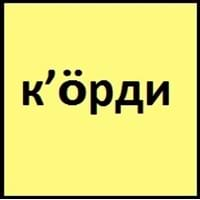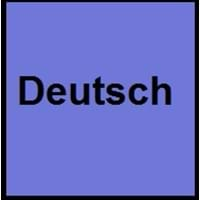Countries
Iraq, Kurdistan
Austria, Belgium, Germany, Italy, Liechtenstein, Luxembourg, Switzerland
National Language
Azerbaijan, Georgia, Iran, Iraq, Syria, Turkey
Germany
Second Language
Not spoken in any of the countries
North Dakota, United States of America
Speaking Continents
Middle East
Europe
Minority Language
Not spoken in any of the countries
Czech Republic, Denmark, Former Soviet Union, France, Hungary, Italy, Namibia, Poland, Romania, Slovakia, Slovenia
Regulated By
Not Available
Council for German Orthography
Interesting Facts
- The vocabulary in Kurdish is of Iranian origin.
- In the middle East, Kurdish is the fourth largest ethnic group.
- One of the large group of Indo-Germanic languages is German.
- The second most popular Germanic language spoken today behind English is German language.
Similar To
Farsi Language
Dutch, Danish, Norwegian, Swedish and English Languages
Derived From
Not Available
Albanian Languages
Alphabets in
Kurdish-Alphabets.jpg#200
German-Alphabets.jpg#200
Scripts
Arabic, Cyrillic, Latin
Latin
Writing Direction
Right-To-Left, Horizontal
Left-To-Right, Horizontal
How Are You?
Tu çawa yî?
Wie geht es dir?
Good Night
Şev xweş
gute Nacht
Good Evening
Evare baş
guten Abend
Good Afternoon
Nee-wa-rowt bash
guten Tag
Good Morning
Bayanit bash
guten Morgen
I Love You
Ez te hez dikem
Ich liebe dich
Excuse Me
Bê zehmet
Entschuldigung
Dialect 1
Northern Kurdish
Swiss German
Where They Speak
northern Iraq, northern Syria, northwest Iran, southeast Turkey
Switzerland
Dialect 2
Central Kurdish
Swabian German
Where They Speak
Iraq, Kurdistan Province of western Iran
Germany
Dialect 3
Southern Kurdish
Texas German
Where They Speak
Eastern Iraq
Texas
Second Language Speakers
Not Available
Native Name
Kurdí / کوردی / к’öрди
Deutsch
Alternative Names
Not Available
Deutsch, Tedesco
French Name
kurde
allemand
German Name
Kurdisch
Deutsch
Pronunciation
Not Available
[ˈdɔʏtʃ]
Origin
16th century CE
6th Century AD
Language Family
Indo-European Family
Indo-European Family
Subgroup
Indo-Iranian
Germanic
Branch
Not Available
Western
Early Forms
Not Available
No early forms
Standard Forms
Kurdish
German Standard German, Swiss Standard German and Austrian Standard German
Language Position
Not Available
Signed Forms
Not Available
Signed German
Scope
Macrolanguage
Individual
ISO 639 6
Not Available
deus
Glottocode
kurd1259
high1287, uppe1397
Linguasphere
58-AAA-a
52-ACB–dl & -dm
Language Type
Living
Living
Language Linguistic Typology
Subject-Object-Verb
Subject-Object-Verb, Subject-Verb-Object
Language Morphological Typology
Not Available
Fusional, Synthetic
All Kurdish and German Dialects
Most languages have dialects where each dialect differ from other dialect with respect to grammar and vocabulary. Here you will get to know all Kurdish and German dialects. Various dialects of Kurdish and German language differ in their pronunciations and words. Dialects of Kurdish are spoken in different Kurdish Speaking Countries whereas German Dialects are spoken in different German speaking countries. Also the number of people speaking Kurdish vs German Dialects varies from few thousands to many millions. Some of the Kurdish dialects include: Northern Kurdish, Central Kurdish. German dialects include: Swiss German , Swabian German. Also learn about dialects in South American Languages and North American Languages.
Kurdish and German Speaking population
Kurdish and German speaking population is one of the factors based on which Kurdish and German languages can be compared. The total count of Kurdish and German Speaking population in percentage is also given. The percentage of people speaking Kurdish language is 0.31 % whereas the percentage of people speaking German language is 1.39 %. When we compare the speaking population of any two languages we get to know which of two languages is more popular. Find more details about how many people speak Kurdish and German on Kurdish vs German where you will get native speakers, speaking population in percentage and native names.
Kurdish and German Language Codes
Kurdish and German language codes are used in those applications where using language names are tedious. Kurdish and German Language Codes include all the international language codes, glottocodes and linguasphere.





